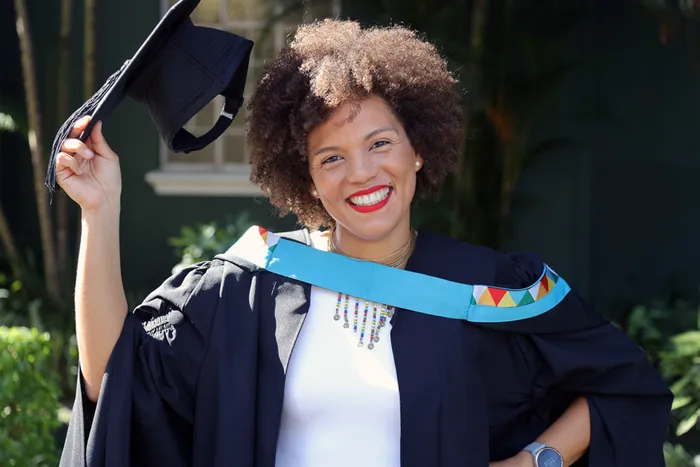Researcher uncovers why LGBTQ+, queer persons of colour are stigmatised

Charlene Donald
Cape Town - Despite South Africa having the most progressive laws for lesbian, gay, bisexual, transgender, queer, and/or questioning (LGBTQ+) persons in Africa, queer persons of colour (QPoC) are among the most stigmatised groups in the country, facing the highest rates of violence often in the name of religion.
This is according to Charlene Donald whose research on the impact of religion on queer identity construction, expression and negotiation in Cape Town, saw her graduate cum laude with a Master of Theology, Gender and Religion degree from the University of KwaZulu-Natal.
Donald works in the Civil Society/ NGO sector that engages the lived reality of queer people in the Global South.
“As a QPoC living in Cape Town, I’ve experienced the Us-Them dichotomy that persists within the queer community in post-apartheid South Africa,” said Donald.
She noted that “liberal” Cape Town continues to police people based on race, gender and sexuality to determine who receives their allotted dose of oppression, domination and marginalisation.
QPoC are among the most stigmatised groups in the country, facing the highest rates of violence, often in the name of religion, she said.
“As a survival strategy many QPoC are forced to hide their identities, condemning them to the margins or subjecting them to the violent consequences of living an openly queer life in communities that demonise them,” said Donald.
The key findings of her research indicate how queerness, as an undefinable, ever-changing, uniquely expressed, interpreted and understood paradigm, threatens the systems of heterosexual privilege, White supremacy and male domination.
The research highlights how class either amplifies or moderates the vulnerabilities of systemic heteronormativity.
It demonstrates that access to the protections guaranteed in South Africa’s progressive Constitution depends on both class privilege and conformation to heteronormative gender and sexual ideals.
Donald’s research found that religion is too focused on QPoC as the problem, rather than identifying the religiously-infused patriarchal heteronormativity as the problem.
“QPoC’s relationship to religion is complex and if we are to realise a truly free South Africa, religious resources need to go beyond resilience and begin to resist life-denying theologies,” said Donald.
“QPoC are being forced to sacrifice fundamental parts of their humanity - abandoning their faith, their family or themselves to find safety.’
Donald argued that this needs to change and that alternative theologies and queer theologians are needed to lead religious institutions, to centre and represent marginalised communities, allowing QPoC to become dialogue partners in theological excavation, integrating historically inherited theology with new sites of struggle and moving QPoC closer to deciphering God’s plan.
“(This) research shows the undeniable negative impact of these exclusionary theologies on QPoC and contributes to queer studies, which have been criticised for neglecting the experiences of QPoC in the developing world. It provides the opportunity to ask difficult questions about how race and class are refracted through religion and religious practices, in relation to queerness.”
Donald thanked her wife Larissa, family, friends and supervisor Professor Charlene van der Walt for their support and guidance during her studies.
She plans to expand her research into a PhD and to share the realities faced by QPoC as she continues to work to the end of othering of gender and sexual minorities.
“What sustains you when things get tough is the passion.”
Cape Times
Related Topics: